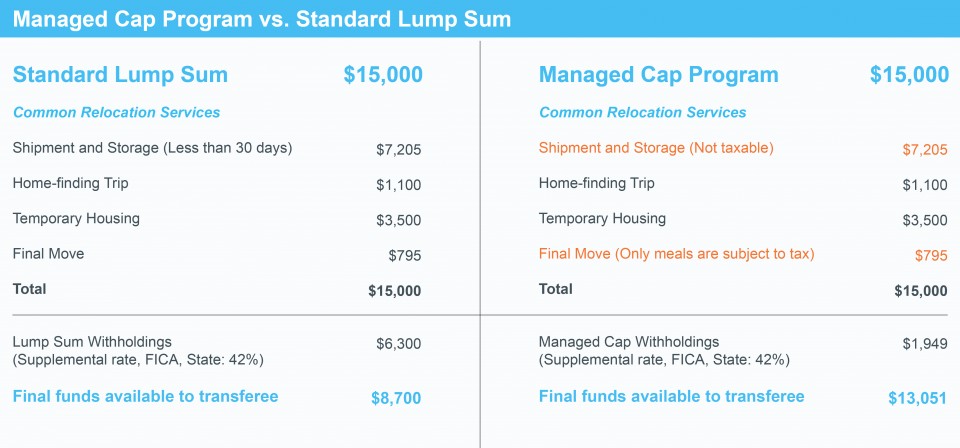What does a traditional Lump Sum relocation program entail as opposed to Lump Sum Self-Service? In traditional Lump Sum relocation programs, employees receive a specific amount of funds for relocation. They also work with a Relocation Management Company to select services within the parameters of their employer’s relocation policy. Global Mobility Solutions (GMS) can also arrange for relocating employees to receive a GMS MoveMoney™ debit card. With this card, funds are electronically transferred to the employee after their expense report is audited.
Lump Sum Self-Service
GMS is developing a new online Lump Sum Self-Service with Payment Options to provide relocating employees direct access to our network of suppliers through our proprietary MyRelocation™ website portal. Using the lump sum provided by their employer, the relocating employee will be able to choose any of the services and options within our network of providers. They will also be able to arrange payments directly to the providers. Furthermore, the employer does not have to track relocation expenses or be involved in the process. As a result, the relocating employee will have complete freedom of choice for their relocation process. They can utilize helpful packing and moving guides and other information as they manage their relocation.
Benefits of Lump Sum Self-Service
There will be several benefits to the Lump Sum Self-Service for relocating employees:
- Immediate access to suppliers of proven quality and experience
- Payment options with suppliers that are easy to set up
- Information about services that they otherwise might not have found doing their own research
- Anytime, anywhere access to the employee’s relocation information
- Cost savings for the relocating employee with multiple suppliers bidding to provide services
- Reduced administration costs and efforts for employers
Conclusion
Relocating employees provided with Lump Sum funds will soon be able to have access to a network of qualified suppliers through Lump Sum Self-Service. Asking providers to bid for services and choosing the lower cost options will help relocating employees save money for other relocation services. Employers choosing to provide Lump Sum funds to relocating employees should encourage the use of Lump Sum Self-Service with Payment Options.
The global relocation experts at GMS have the knowledge and expertise to help your company understand how to communicate the benefits of Lump Sum Self-Service with Payment Options to your relocating employees. Contact our team of experts to discuss your relocation policy needs, or call us at 800.617.1904 or 480.922.0700 today.




